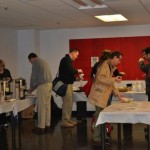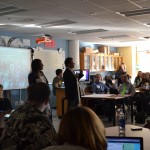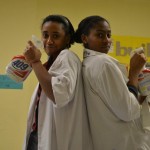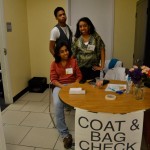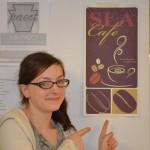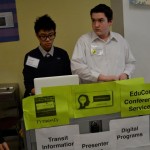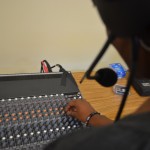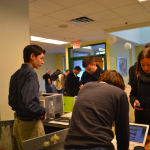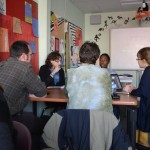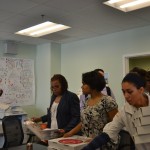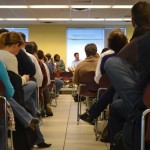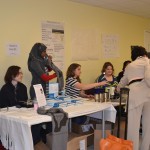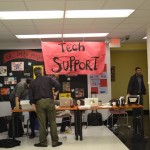By Natasha Ashby
Staff Writer
This month, the SLA girls basketball team has advanced to the playoffs for the first time.
The team has shown an improvement from previous years, when the program was still building its morale and its roster.
“Last year we didn’t make it to the playoffs. We didn’t win as many games; we didn’t have as many players,” said Junior and Team Captain Dayona McNeil.“This year we communicate really well, we have a lot of chemistry and the players are passionate about playing.”
Coach Garvey also had an assistant coach this year to help her push the team and provide more support –Coach Martina Randall, who played college basketball at Cheyney University.
McNeil also attributes this year’s success to the motivation of the players.
“When the season started, my goal for the team was to make it to the playoffs,” she said. “Work hard and if you don’t want to put in 100% effort, you don’t need to be on this team.”
Basketball isn’t all about winning, it is also about having fun.
“I have a lot of funny moments while I’m playing basketball,” said McNeil. ” In one of my games the ball was rolling out of bounds and I was trying to save it. I was running full speed to get it but I didn’t realize one of my teammates was also trying to get it. When I realized she was trying to save it, she was already falling and then I flipped over her and fell, as well, and neither of us got it.”
Senior Anna Roman has been a part of the basketball team since freshman year, and has become a stronger leader, skilled player, and more confident in herself since then.
“Asking a basketball player why they like basketball is like asking an artist why they like art? Or you why you like journalism?” said Roman. “It’s all about passion.”
Each player clearly respects Coach Garvey — which includes memorizing their favorites quotes of hers.
For McNeil, it’s when Garvey says, “no walking on the court, if you walk you’re out.”
Roman says that Garvey has a particular way of getting the team’s attention.
“She claps A LOT. It’s like, “Let’s get to work *CLAP*” “We got this *CLAP*” “Move it girls *CLAP*” “Bring it in *CLAP*” “Stop walking *CLAP*” You get the picture. So it’s just kind of funny.”
The playoff game was on Wednesday February 8th, 2012 against Communications Tech, which was a close loss for the Lady Rockets.
“Losing was heartbreaking,” Coach Garvey said the day after the game. “We played the top seed from the other division and came within 3 points. We should have beat them, but we didn’t.”
Despite this disappointment, Coach Garvey is excited about the future.
“The season is over and I don’t get to see them everyday, but next year is going to be our year! I’m serious, it really is,” she said.
